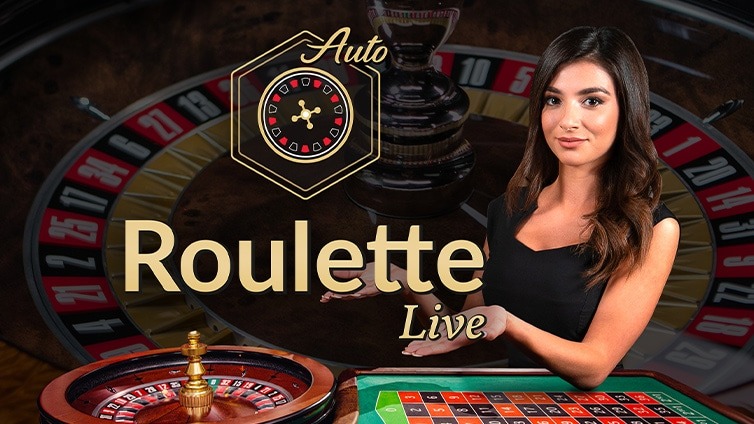The Psychology of Online Roulette in the Digital Age: Notifications, UI Design & Player Retention
Many online roulette advancements are encouraging higher player retention. UI design, mobile notifications, and data-driven gaming personalization are just some of the features in today’s digital age that drive more roulette players to keep spinning the wheel.
Roulette bettors can check out christchurchcasino.com. There are live and RNG-based roulette titles available for expert and novice players to try. Understanding these advanced features will help everyone see why online roulette is an awesome engagement in the virtual casino experience.
The Power of UI Design In Online Roulette

Online roulette’s UI design is sleek and colorful. These design choices are rooted in psychology to keep bettors spinning the roulette wheel.
Bright colors and high-profile animations displayed during a win are a cause for celebration. The features may even get players to keep spinning.
Dragging chips to the betting table and tactile spin buttons make the online roulette experience more interactive and life-like. There’s not much downtime in between roulette spins, encouraging bettors to keep playing.
Many online roulette platforms display hot and cold numbers to make players perceive there are patterns in this casino game. However, the randomness in every spin makes hot and cold numbers a psychological construct to make roulette players believe they are in control.
Another subtle yet effective UI strategy is the use of gamification elements such as loyalty meters, level progression bars, and streak trackers. These elements offer players a sense of achievement even when they are not winning money, reinforcing engagement and incentivizing continued play.
Bright visual cues combined with micro-rewards—like unlocking a new theme or a special spin animation—tap into players’ reward systems, nudging them to return more frequently.
Notifications Keep Players In the Know

Bettors playing on mobile roulette platforms can receive notifications on their devices. They can receive reminders if they have bonus chips waiting, or if their lucky number just hit.
Some casino platforms may offer double or triple the rewards during a specific period. A notification may invite them to come play to incite a sense of urgency. If players have time when they get the notification, they may log on and play immediately. If they are in the middle of doing something else, they may set an alarm to remind themselves not to miss out on this roulette bonus.
These notifications cause players to have FOMO (fear of missing out) while tapping into loss aversion psychology. This means that online roulette bettors feel compelled to come back and play roulette because they feel they will lose out on a reward if they don’t take the opportunity.
Beyond just FOMO, these mobile alerts are designed with precision timing based on user behavior. For instance, if a player typically logs on in the evenings, platforms may schedule promotional notifications during this window to optimize conversion.
Some operators also employ A/B testing to refine notification copy—testing emotional words like “last chance” or “exclusive bonus” to determine which phrasing most effectively reactivates dormant users.
Sound Design Manipulates Players’ Emotions

Hearing the roulette wheel clink from number to number while spinning builds anticipation as it slows down. The celebratory pings of hitting a winning number give players that dopamine rush.
Background music is calmer and not as loud as the celebratory pings. This keeps the flow of the game going while allowing players to make level-headed decisions while betting in between each round, unless they have the Autospin feature on.
Sounds like an audience saying “Awww” when you land on a close winning numbers are near-miss sounds. They may encourage bettors to keep spinning with the perception that they are that much closer to a win.
In addition, immersive soundscapes are now personalized using AI. For example, if a player tends to react more positively to upbeat tones or classical melodies, machine learning algorithms may adjust in-game audio to match their preferences.
This creates a tailor-made auditory experience that keeps players emotionally invested. Near-win sound cues, in particular, have been fine-tuned to trigger a subtle motivational push to continue playing rather than quit.
Data-Driven Gaming Personalization In Online Roulette

Machine learning algorithms and user data tracking enhance gaming personalization for online roulette bettors. Based on betting history, your favorite numbers may come up in milestones you have to reach while playing RNG-based roulette. For example, if you bet regularly on the numbers 14 and 39, one of your milestones for the day may be landing on 14 at least once.
Bonus offers are adjusted based on previous spin behaviors. For example, stop playing after a losing streak, the system may automatically reward you with a free chip as a “second chance” type spin.
Advanced analytics also allow operators to create segmented player profiles, such as casual players, high rollers, or streak chasers. Each segment receives tailored content, bonuses, and even visual UI themes.
For instance, high rollers might see more luxurious interface designs, while casual players get tutorials and tips integrated into gameplay. This personalization extends to email marketing and CRM systems, ensuring players feel individually valued.
Furthermore, cross-device tracking means a player can switch from mobile to desktop and still get a seamless experience, with their session preferences and in-progress bets maintained across platforms. This continuity reduces friction and improves user satisfaction.
Conclusion
Game developers consider all angles of user psychology as they create an online roulette game. Enhancing UI design, utilizing sound effects, and enhancing gaming personalization are important features of an immersive online roulette gaming experience.
In today’s competitive online gaming market, it’s no longer just about spinning the wheel—it’s about how deeply the player feels connected to the experience. Developers continue to study behavioral patterns, incorporating biometric feedback (like time-to-click or scroll speed) to better understand emotional states. This allows the experience to evolve in real time, aligning with user moods and maximizing engagement.
🔍 FAQs
Q1: Why does online roulette feel more addictive than traditional roulette?
A: The integration of UI psychology, instant feedback loops, and reward systems designed around player behavior significantly boosts emotional investment and session length.
Q2: Are notifications optional in online casinos?
A: Most platforms allow users to customize or disable notifications via app or browser settings, but many keep them on due to enticing offers and reward reminders.
Q3: How can players avoid manipulation while playing online roulette?
A: Setting time and money limits, using licensed platforms, and staying aware of psychological triggers like near-miss cues and urgency-based notifications can help maintain control.
Q4: Do algorithms ever rig roulette outcomes?
A: Licensed platforms must use certified RNGs (random number generators) and are regularly audited to ensure fairness. However, personalization can still guide how rewards and content are displayed—not the outcomes.






